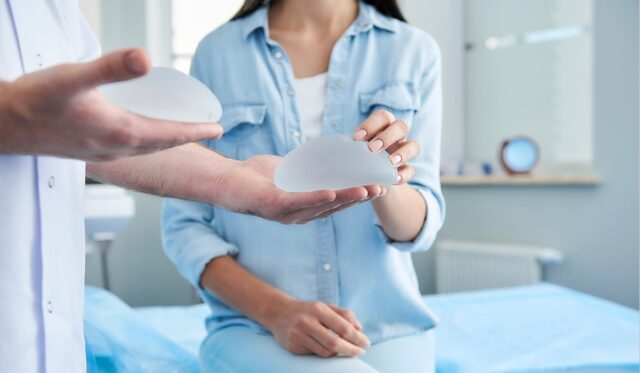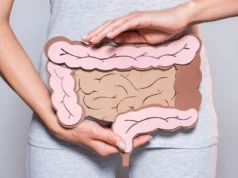
Cancer is agonizing and dreadful. Just thinking about it tends to give people chill bumps. In 2020 alone, it was responsible for ten million deaths. And worse, as per estimates, this number may cross 16 million by 2040.
No doubt, cancer is one of the most widespread diseases worldwide. It can affect anyone, irrespective of age and gender. Cancer starts when cells within the body start dividing uncontrollably. The rogue cells repeatedly replicate themselves until they form clusters commonly known as tumors.
Tumors damage the nearby tissues or organs if not treated on time. Some tumors expand from their primary spot to other body parts via the bloodstream or lymphatic system. And that’s how different types of cancer occur from breast to blood.
Many factors increase your risk of contracting this deadly disease. These factors are usually lifestyle choices. Read about these factors in detail below.
1. Over Consuming Alcohol

Alcohol is the primary factor responsible for cancer worldwide. In 2020, alcohol was responsible for 4% of the 750000 cancer cases. Alcohol consumption commonly causes liver and esophagus cancer.
Alcohol can damage your body’s cells, especially in your liver, when it breaks down into acetaldehyde. Acetaldehyde mutates into cancerous cell growth and damages the DNA.
Also, drinking too much alcohol can increase cholesterol levels in your blood. Your risk of cardiac problems, stroke, high BP, etc., increases with this. It’s hence essential to, if not quit, then limit your alcohol intake.
Doing so will save you unbearable pain and misery and may also prevent your life span from shortening.
2. Undergoing Hair Straightening Treatment
If you’re undergoing hair straightening treatment, it could be putting your health at risk. According to NIEHS research, the probability of acquiring cancer after hair straightening treatment is 4.05%. That is not a low rate considering how many people undergo such treatment.
Hair straightening involves chemicals that damage your scalp and cause inflammation over time. Inflammation can lead to many types of diseases, including cancer. Chemicals used in this process include formaldehyde, parabens, bisphenol A, metals, and Di(2-ethylhexyl)phthalate (DEHP). These chemicals contain carcinogenic heavy metals responsible for cancers, such as breast and uterine cancer.
You might be startled to learn that this is the subject of a lawsuit. Victims have filed a hair straightening cancer lawsuit against the product manufacturers, including big names like L’Oreal and Softsheen-Carson. The lawsuit claims that the manufacturer failed to warn the users about the potential harm.
If you have a history of hair straightening and are suffering from cancer, consult your doctor to see if the reason can be traced back to the product. If yes, you may be eligible for the hair straightener cancer lawsuit. It may not help with the emotional and physical trauma you went through because of cancer. But you can indeed receive the financial compensation you deserve.
3. Taking Menopausal Hormone Therapy

Menopausal hormone therapy is a group of medications that treats the symptoms of menopause. It may include estrogen, progesterone, or both. The use of menopausal hormone therapy has been associated with breast cancer and ovarian cancer.
The therapy increases the amount of estradiol in the body. Estradiol is a hormone made from testosterone by the ovaries. The creation occurs during puberty and pregnancy to prepare the female body for childbirth.
Sadly, it also acts as a growth factor for cells throughout your body, including those in the breast tissue. That’s where tumors can form if too much estradiol is circulating inside your blood vessels at any given time.
4. Having No Physical Activity

It’s easy to become too comfortable with a sedentary lifestyle. But, this can cause serious health issues. For example, every two hours of sitting raises your risks of developing colon and endometrial cancer by 8% and 10%, respectively.
In addition to raising cancer risk, physical inactivity also increases the risk of obesity, which has been linked to breast cancer, heart disease, diabetes, etc. Physical inactivity also reduces your lifespan.
The good news is that there are many ways you can incorporate physical activity into your daily routine. Walking around instead of taking public transportation, taking the stairs instead of the elevator, playing sports with friends on weekends, and the list goes on. Pair this with a healthy diet and see how your health improves drastically.
5. Resorting to Birth Control Methods

Birth control pills are made from estrogen. They increase your chances of diagnosing breast cancer. It’s not all bad news, though. Not all types of birth control are harmful or deadly.
Some offer protection against cancers like ovarian and endometrial. It’s best to discuss with your doctor about taking birth control and cancer risk beforehand. This will help you decide what is best for you.
6. Getting Breast Implants Surgery

If you’re planning to get breast implant surgery, the FDA urges you to consider your options carefully.
In a warning issued earlier this year, the agency stated an increased risk of squamous cell carcinoma and lymphomas among women who have had breast augmentation surgery with silicone gel-filled implants.
This warning came after several studies showed that women with these implants were more likely to develop certain cancers than those without them. Cancer may develop even when they are younger than 50 years old.
7. Exposing Yourself to Too Much Radiation
If you’re exposed to too much radiation, it can lead to cancer. Public health statistics do not definitively prove cancer incidence upon exposure to dose rates less than 10,000 mrem of ionizing radiation. However, research has shown that high radiation levels have been linked with skin cancer, prostate, nasal sinus, pharyngeal, and laryngeal cancers.
Avoid high-dose X-rays and tanning beds to reduce your risk for these cancers. Make it a habit of sunblock with SPF 30+ on all exposed areas when going outside. And please avoid unnecessary medical tests like CT scans unless necessary.
Conclusion
The bottom line is that cancer is complex, and there’s no one-size-fits-all approach to preventing it. But if you have any of the risk factors mentioned above or want to be proactive about your health, it’s worth considering whether these lifestyle habits might impact your cancer risk.
With a few lifestyle adjustments and frequent cancer screenings, you can minimize your cancer risks today and later in life. Wish you a cancer-free and disease-free living.













